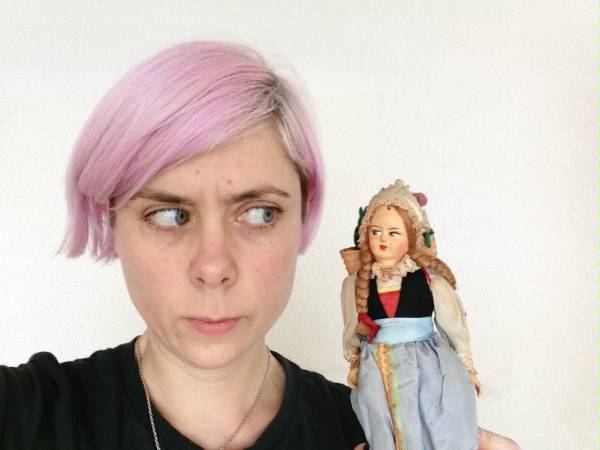Dr Kate M. Graham


My research and writing focuses on contemporary queer culture; queer grief; and queer history.
In the past, my research interests have also included revenge; Early Modern drama (particularly revenge tragedies); and contemporary performances of Early Modern drama.
I have taught at the University of Westminster since 2007 and became a permanent member of staff in 2016. Currently, I sit on the steering committee for Pedagogies for Social Justice and for Black History Year. Previously, I was the convenor of the School of Humanities EDI Working Group, and, along with my college, Dr Simon Avery, was co-director of the Queer London Research Forum.
I have a BA (Hons) in English Literature from the University of Westminster (First Class); an MA in Text and Performance Studies from King’s College London and the Royal Academy of Dramatic Art (Distinction); an MA in Cultural and Critical Studies from Birkbeck, University of London (Distinction); and a PhD in Theatre Studies from Birkbeck and RADA.
I have also worked as a theatre reviewer for The Morning Star since April 2014 and am an occasional contributor to the Beesotted Pride of West London Brentford FC podcast.
My current book project, Let's Not Be Deterred by the Need for a Linear Narrative, chronicles the deaths of seven family members and brings together memoir, the literary, and queer cultural criticism. A connected piece of creative non-fiction, which considers the experience of teaching while grieving, is forthcoming in The Palgrave Handbook of Literary Memory Studies (2025).
My previous research has focused on two areas, the first being revenge and the revenge dramas of the Early Modern period, particularly those by Thomas Kyd, Thomas Middleton, Francis Beaumont, John Fletcher, and John Ford. In this work I have been particularly interested in how revenge intersects with ideas around temporality, gender, the emotions, and sexual desire. This work has been published in Early Theatre, Critical Survey, and in various edited collections.
The second thread of my research has focused on queer history and questions around queer temporalities. Along with my colleague, Dr Simon Avery, I edited Sex, Time and Place: Queer Histories of London c. 1850 to the present (Bloomsbury, 2016). In this collection I have a chapter examining the efficacy of queer temporality theory as a frame through which to consider ideas of queer London.